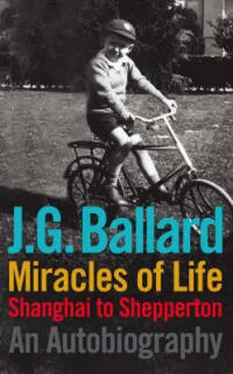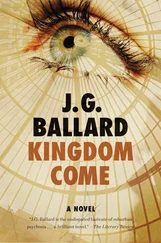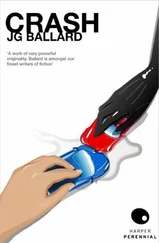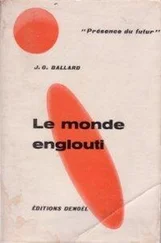He was always telling the chauffeur to slow down when we passed significant local landmarks – the Radium Institute, where cancer would be cured; the vast Hardoon estate in the centre of the International Settlement, created by an Iraqi property tycoon who was told by a fortune-teller that if he ever stopped building he would die, and who then went on constructing elaborate pavilions all over Shanghai, many of them structures with no doors or interiors. In the confusion of traffic on the Bund he pointed out ‘Two-Gun’ Cohen, the then famous bodyguard of Chinese warlords, and I gazed with all a small boy’s awe at a large American car with armed men standing on the running-boards, Chicago-style. Before the war my father often took me across the Whangpoo river to his company’s factory on the eastern bank – I remember still the fearsome noise of the spinning and weaving sheds, the hundreds of massive Lancashire looms each watched by a teenage Chinese girl, ready to stop her machine if a single thread was broken. These peasant girls had long been deafened by the din, but they were their families’ only support, and my father opened a school next to the mill where the illiterate girls could learn to read and write and have some hope of becoming office clerks.
This rather impressed me, and I thought long and hard as we sailed back across the river, the China Printing ferry avoiding the dozens of corpses of Chinese whose impoverished relatives were unable to afford a coffin and instead launched them onto the sewage streams from the Nantao outfall. Decked with paper flowers, they drifted to and fro as the busy river traffic of motorised sampans cut through their bobbing regatta.
Shanghai was extravagant but cruel. Even before the Japanese invasion in 1937 there were hundreds of thousands of uprooted Chinese peasants drawn to the city. Few found work, and none found charity. In this era before antibiotics, there were waves of cholera, typhoid and smallpox epidemics, but somehow we survived, partly because the ten servants lived on the premises (in servants’ quarters twice the size of my house in Shepperton). The huge consumption of alcohol may have played a prophylactic role; in later years my mother told me that several of my father’s English employees drank quietly and steadily through the office day, and then on into the evening. Even so, I caught amoebic dysentery and spent long weeks in Shanghai General Hospital.
On the whole, I was well protected, given the fears of kidnapping. My father was involved in labour disputes with the Communist trade union leaders, and my mother believed that they had threatened to kill him. I assume that he reached some kind of compromise with them, but he kept an automatic pistol between his shirts in a bedroom cupboard, which in due course I found. I often sat on my mother’s bed with this small but loaded weapon, practising gunfighter draws and pointing it at my reflection in the full-length mirror. I was lucky enough not to shoot myself, and sensible enough not to boast to my friends at the Cathedral School.
Summers were spent in the northern beach resort of Tsingtao, away from the ferocious heat and stench of Shanghai. Husbands were left behind, and the young wives had a great time with the Royal Navy officers on shore leave from their ships. There is a photograph of a dozen dressed-up wives each sitting in a wicker chair with a suntanned, handsomely smiling officer behind her. Who were the hunters, and who the trophies?
Amherst Avenue was a road of large Western-style houses that ran for a mile or so beyond the perimeter of the International Settlement. From the roof of our house we looked across the open countryside, an endless terrain of paddy fields, small villages, canals and cultivated land that ran in the direction of what later became Lunghua internment camp, some five miles to the south. The house was a three-storey, half-timbered structure in the Surrey stockbroker style. Each foreign nationality in Shanghai built its houses in its own idiom – the French built Provençal villas and art deco mansions, the Germans Bauhaus white boxes, the English their half-timbered fantasies of golf-club elegance, exercises in a partly bogus nostalgia that I recognised decades later when I visited Beverly Hills. But all the houses, like 31 Amherst Avenue, tended to have American interiors – overly spacious kitchens, room-sized pantries with giant refrigerators, central heating and double glazing, and a bathroom for every bedroom. This meant a complete physical privacy. I never saw my parents naked or in bed together, and always used the bath and lavatory next to my own bedroom. By contrast, my own children shared almost every intimacy with my wife and me, the same taps, soap and towels, and I hope the same frankness about the body and its all too human functions.
But physical privacy may have been more difficult for my parents to achieve in our Shanghai home than I could have imagined as a boy. There were ten Chinese servants – No. 1 Boy (in his thirties and the only fluent English speaker), his assistant No. 2 Boy, No. 1 Coolie, for the heavy housework, his assistant No. 2 Coolie, a cook, two amahs (hard-fisted women with tiny bound feet, who never smiled or showed the least signs of affability), a gardener, a chauffeur and a nightwatchman who patrolled the drive and garden while we slept. Lastly there was a European nanny, generally a White Russian young woman who lived in the main house with us.
The cook’s son was a boy of my age, whose name my mother remembered until her nineties. I tried desperately to make friends with him, but never succeeded. He was not allowed into the main garden, and refused to follow me when I invited him to climb the trees with me. He spent his time in the alley between the main house and the servants’ quarters and his only toy was an empty Klim tin that had once held powdered milk. There were three holes in its lid, through which he would drop small stones, then remove the lid and peer inside. He would do this for hours, mystifying me completely and challenging my infinitely short attention span. Aware that I had a bedroom filled with expensive British and German toys (ordered every September from Hamleys in London), I made a selection of cars, aeroplanes, lead soldiers and model battleships and carried them down to him. He seemed bemused by these strange objects, so I left him to explore them. Two hours later I crept back and found him surrounded by the untouched toys, dropping stones into his tin. I realise now that this was probably a gambling game. The toys had been a genuine gift, but when I went to bed that night I found that they had all been returned. I hope that this shy and likeable Chinese boy survived the war, and often think of him with his tin and little pebbles, far away in a universe of his own.
This large number of servants, entirely typical among the better-off Western families, was made possible by the extremely low wages paid. No. 1 Boy received about £30 a year (perhaps £1000 at today’s values) and the coolies and amahs about £10 a year. They lived rent-free but had to buy their own food. Periodically a delegation led by No. 1 Boy would approach my mother and father as they sipped their whisky sodas on the veranda and explain that the price of rice had risen again, and presumably my father increased their pay accordingly. Even after the Japanese seizure of the International Settlement in December 1941 my father employed the full complement of servants, though business activity had fallen sharply. After the war he explained to me that the servants had nowhere to go and would probably have perished if he had dismissed them.
Curiously, this human concern ran hand in hand with social conventions that seem unthinkable today. We addressed the servants as ‘No. 1 Boy’ or ‘No. 2 Coolie’ and never by their real names. My mother might say, ‘Boy, tell No. 2 Coolie to sweep the drive…’ or ‘No. 2 Boy, switch on the hall lights…’ I did the same from a very early age. No. 1 Boy, answering my father, would say ‘Master, I tell No. 2 Boy buy fillet steak from compradore’ – the lavishly stocked food emporium in the Avenue Joffre which supplied our kitchen.
Читать дальше






